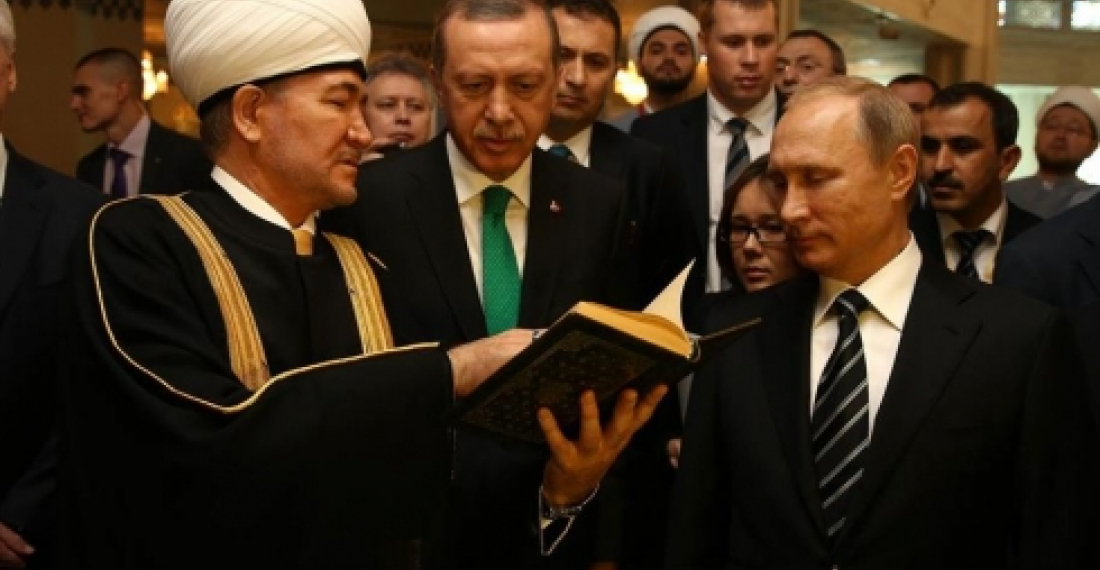Russian President Vladimir Putin was joined by Turkish President Recep Tayyip Erdogan, Palestinian leader Mahmoud Abbas and Kazakhstan's President Nursultan Nazarbayev for the opening of a new Grand Mosque.
The Grand Mosque opened on September 23 in the Russian capital after a decade of construction work.The mosque was demolished and rebuilt to become one of the biggest mosques in the country with a room for 10,000 believers. As a result of the reconstruction, costing some $170 million, the building's floor space has been increased twenty-fold to 19,000 square meters.
Turkish President Recip Tayip Erdogan held meetings with the Russian President during the course of his visit to Moscow. Whilst Syria was the most important item on the agenda of the two leaders, other regional issues, as well as bilateral economic relations were also expected to be discussed.
The Turkish newspaper, Daily Sabah, which is close to Turkey's ruling Ak Party, said that Erdoğan and Putin "were expected to discuss Russia's increasing military presence in Syria and its support for Bashar Assad 's regime in Damascus, which continue to stand as the major thorn in Turkish-Russian relations. Erdoğan will argue to Putin once again that the al-Assad regime is the main source of instability in the region and will underline that Russia and Iran's peace initiatives are unlikely to bring peace as long as Assad remains in power".
The newspaper also said that the two leaders will also try to solve disagreements over the Turkish Stream project, a natural gas pipeline project to deliver Russian natural gas to Europe via the Black Sea and Turkey via four pipelines with a capacity of 63 billion cubic meters. "Turkey has been in favor of starting the first line, which has a capacity of 15.75 billion cubic meters, but the project could not start due to the failure of Turkey and Russia to reach an agreement", according to Daily Sabah.
Some reports suggest that Erdogan and Putin may also touch on the current situation around the Nagorno-Karabakh conflict. The Foreign Ministers of both Russia and Turkey have paid separate visits to Baku in September as part of ongoing efforts to seek a breakthrough in the current stalemate in negotiations.
source: commonspace.eu with Tass (Russia) and Daily Sabah (Turkey)
Photo: President Erdogan of Turkey and President Putin of Russia at the opening of the new Grad Mosque in Moscow (picture courtesy of Anadolu News Agency).






